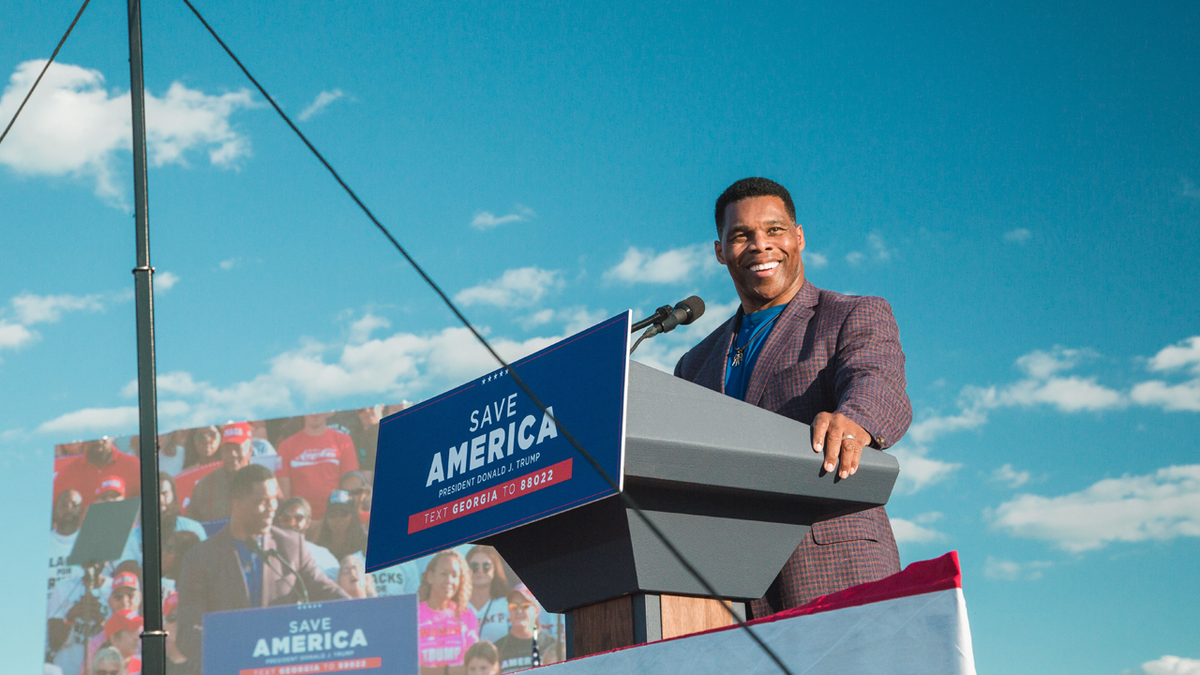What are the biggest takeaways from Tuesday's primary elections?
'Special Report' anchor Bret Baier shares key results from Tuesday's primary elections on 'Fox News @ Night.'
One of President Joe Biden’s favorite sayings from the campaign trail is, "Don’t compare me to the Almighty, compare me to the alternative." And it seems, less than 100 days out from the 2022 midterm elections, voters are doing just that: comparing each candidate on their own individual merits. The oft-repeated mantra that "candidates matter" is proving true as Republicans are consistently underperforming their Democratic counterparts in the polls and nominating extreme candidates far outside the mainstream. In an evenly divided U.S. Senate, every candidate and battleground state matters.
Here's a look at three critical factors working against Republican hopes for returning to power in the upper chamber this fall.
Money Talks
Second quarter fundraising numbers released just last month paint a very different picture between rival camps, with Democrats posting "blockbuster" hauls while GOP candidates have mostly flopped. Arizona, Georgia and New Hampshire are must-win states for Team Red’s chances of flipping the Senate, but the incumbent Democrats wiped the floor with their Republican challengers. Arizona provided the starkest financial divide as incumbent Sen. Mark Kelly raised $13.6 million during the quarter, compared with just $827,000 for Blake Masters, the Republican nominee.
In New Hampshire, incumbent Democratic Sen. Maggie Hassan raised just over $5 million in Q2, compared to just $538,000 for challenger Chuck Morse, the state Senate president. In the Peach State, Trump-backed Herschel Walker, who easily bested his GOP rivals in May, posted a respectable $6.2 million, but Sen. Raphael Warnock raised nearly three times as much, bringing in $17.2 million during the same period.

Herschel Walker speaks at Save America event in Perry, Georgia. (Herschel Walker campaign)
With a handful of GOP retirements in states like Pennsylvania, Ohio and North Carolina, Democrats are on the offense in a midterm year that could actually buck historic trends and headwinds. In the Keystone State, Lt. Gov. John Fetterman raised $11 million, nearly three times the $3.8 million raised by Republican Dr. Mehmet Oz, despite the latter’s backing by former President Donald Trump and Oz’s primary victory in June. Populist Democratic Congressman Tim Ryan also trounced his opponent J.D. Vance in Ohio last quarter, raking in $9.1 million to just over $2.3 for the author-turned senate hopeful.
Fractured Base
Long dead are the days when Ronald Reagan’s eleventh commandment, "Thou shall not speak ill of another Republican" prevailed. In 2022, the Republican primary elections were cruel, filled with political and personal attacks and a bitter divide among candidates.
Brutal primary campaigns in Ohio and Pennsylvania, pitting Trump-backed candidates against more establishment supported challengers, have left the victors struggling to pick up the pieces ahead of November. In Pennsylvania, recent polling has Oz down double digits against his Democratic rival Fetterman, due in large part to inability to unite Republicans across the Commonwealth, including locking in voters who backed rivals David McCormick and Kathy Barnette during the primary.
In neighboring Ohio, Vance narrowly secured a primary win in May, thanks in large part to his backing from Trump. That endorsement caused a schism from within the primary electorate, pitting Vance against former Ohio State Treasurer Josh Mandel, who enjoyed the support of the Club for Growth, among others. In the end, more than $66 million was spent by GOP Senate candidates vying for the open seat with the vast majority of that spending going toward negative advertising specifically driving down Vance’s approval ratings.
In Arizona and Missouri, GOP primary voters went to the polls last night to choose their Senate candidates. In Arizona, venture capitalist Blake Masters won the GOP nod with just 39% of the vote in a hard-fought, contentious primary. In Missouri, current Attorney General Eric Schmitt fared better in the primary, netting just over 45% of the vote in an even more heated race against former Gov. Eric Greitens and two sitting Republican congressmen. In both races, a majority of Republicans supported different candidates and have followed in the wake of others highlighted above with some of the most negative campaigning we have seen in GOP contests, which in the end only benefits Democrats in November.
CLICK HERE TO GET THE OPINION NEWSLETTER
Roe Matters
Prognosticators in both parties believed that the Supreme Court’s decision in Dobbs to overturn decades of precedent on abortion rights might have impacts just on the margins of a handful of key races. Yet, voters in deep-red Kansas last night overwhelmingly voted to keep that state’s constitutional right to abortion, including from large numbers of Republican voters. This shows that Dobbs is a much bigger issue for voters than was presumed. That vote, in a state Trump won easily in 2020, demonstrates that voters in both parties soundly reject the anti-choice rhetoric coming from Republicans. This landmine will be tough for Republicans to navigate not only in close races, but in races where the GOP thinks they have a greater margin of likely victory. Voters, especially women, are angry, and they are turning out in large numbers to have their voices heard.
CLICK HERE TO GET THE FOX NEWS APP
One hundred days is a lifetime in politics, and Republicans could certainly rebound should their base begin to consolidate around their candidates, if Democratic fundraising starts to dwindle, or if key indicators on the economy do not improve. But as former House Speaker Tip O’Neill famously quipped, "all politics are local," and the Senate majority will not be decided in Washington nor what decisions happen in Washington, but will rather be by voters who look at their candidates as binary choices. And, with a fractured slate of less than stellar Republican candidates, I like my party’s chances in November.












































